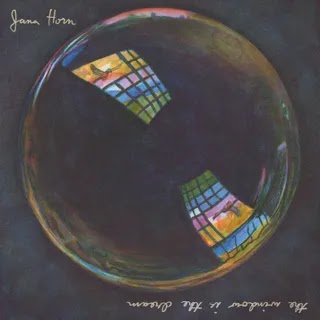Taking influence from the legends of Laurel Canyon, the Nashville songwriter crafts an earnest, tranquil listen that opens up a rich world of detail.
Erin Rae makes gentle music that’s easy to listen to over and over again, and yet it is never boring. The Nashville songwriter’s 2018 album Putting on Airs established this strength with 12 impeccable, minimalist recordings that showcased her subtle vocal style and acoustic guitar playing: It also demonstrated a consistent gift for writing earworms. With her latest album, Lighten Up, Rae keeps the songwriting focused and tight while broadening her stylistic palette, landing on a sound that’s less acutely folksy and more classic, unpretentious pop music.
Produced by Father John Misty collaborator Jonathan Wilson and recorded at his Topanga Canyon studio, Lighten Up is unabashedly influenced by the vintage sounds of a more famous Los Angeles county canyon: The delicate, organic style of Laurel Canyon legends like Joni Mitchell and Judee Sill is all over this album, as is the light psychedelia of late ‘60s and ‘70s pop-country. Bobbie Gentry, Lee Hazlewood, and Don Williams are among Rae’s named influences, and their heavily-produced, laid-back aesthetic is clearly echoed in her work.
Rae and Wilson wear the weight of these familiar influences well, using buoyant layers—not to mention, appearances from Kevin Morby and Hand Habits—to temper their retrophilia. On the album’s catchiest track, “True Love’s Face,” Wurlitzer, organ, piano, and slide guitar slip in and out to create a pleasant, casual groove—the sound of talented people just having fun in the studio. Five of the album’s 12 songs are supplemented by a string quartet, tapping yet another ’70s cue to provide a more expansive and ambitious sound. Occasionally, as on “Gonna Be Strange,” the grandness can be cold compared to the more intimate moments, but it more often adds heft to her understated vocals.
The themes of Lighten Up are connected to those of Putting on Airs, further exploring the intersection of personal relationships and mental wellness. There’s a tone of of therapy-ready, self-actualization to some songs; “Lighten Up and Try” toys with contemporary country’s didactic strain, radio-ready songs that tell a listener what to do or feel. But there is a sincerity to Rae’s music, both lyrically and stylistically, that makes even those sentiments convincing—it comes through the speakers like a warm hug. “Enemy,” a song about the nemeses that lie within our own heads, is hazy and mellow, a finger-picked jam that sounds like the perfect salve for the kind of spiraling self-loathing it describes. An epic journey, “Cosmic Sigh” skirts trite jargon about personal growth in favor of poetry: “Just before the old ways die/They lure, they lie.”
Rae’s songs are so soothing and serene that some of them almost work as lullabies, earning placements on the dreaded lean-back, “vibe”-oriented playlists with titles like “Indie and Chill” and “Soft + Slow.” Yet her easygoing delivery and meaty accompaniment create a rich sound that stands on its own. Within the tranquil atmosphere of Lighten Up is a world of musical and emotional detail, crafted with earnestness and care. Rae’s lyrics are frank and optimistic, warm and sensitive; her plainspoken honesty speaks to songwriting of an older vintage.
The way Rae sings, with abundant melodic flourishes, clear enunciation, and an even, intentional vibrato, also ties her music to a bygone era. Memorable, refreshing, and most rarely among her “Americana” peers, melodically interesting, her songs bring welcome abstraction and airiness to the sometimes overly literal world of 21st century country music. “Modern Woman,” by title alone, reads as yet another superficial girl-power anthem: Press play, though, and you’ll hear a bouncy reaction to exactly those kinds of songs, one explicitly meant to promote the broadest and most inclusive possible definition of womanhood by going far beyond country’s usual white, straight, cisgender heroines.
“Round up the old perceptions,” Rae sings in “Modern Woman.” “Lay them on down.” It’s as close to politics as she ventures on Lighten Up; she mostly takes an introspective tack instead of an observational one. But there is a core generosity to this music, made to explore one woman’s healing in a style likely to make us feel a little better, ourselves.
















0 comments:
Post a Comment